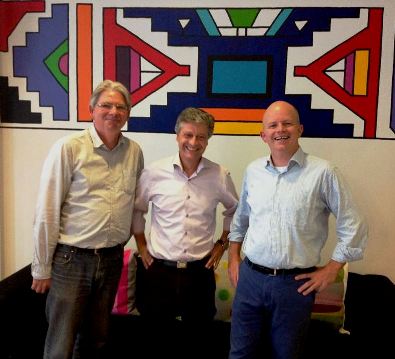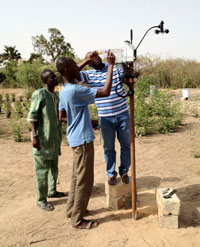In the Spotlight: Centre for Frugal Innovation in Africa

The Centre for Frugal Innovation in Africa is one of the joint multidisciplinary centres of Leiden University, Delft University of Technology and Erasmus University. It investigates how frugal innovation can contribute to inclusive growth and transformation in Africa. The three principal researchers are André Leliveld of the African Studies Centre (Leiden University), Peter Knorringa (International Institute of Social Studies, Erasmus University Rotterdam) and Cees van Beers (Faculty of Technology, Policy and Management, Delft University of Technology).
Quality goods at very low prices
Frugal innovation is a relatively new global phenomenon. It is usually defined as stripping down and re-engineering products and services to offer quality goods at very low prices to the four billion people who are at the 'bottom of the pyramid', of whom 500 million live in Africa. The Centre aims to pinpoint the conditions under which frugal innovation in Africa can improve the lives of large parts of the population - producers as well as consumers.
An example: the frugal thermometer
Under the umbrella of the CFIA and supervised by medical anthropologist Ria Reis (Leiden University Medical Centre), four Industrial Design Master’s students developed a medical device that is able to accurately measure the temperature of (especially) women and children in Africa. Often, tactile measurement of body temperature, e.g. with a hand against the forehead, is the only diagnostic recourse for mothers and other caretakers of young children to establish fever. The newly developed device is affordable, hygienic, reliable, safe, simple to use and suitable for tropical contexts.
 20,000 hydro-meteorological stations
20,000 hydro-meteorological stations
Another example is the Trans-African HydroMeteorological Observatory (TAHMO). The idea behind this project is to develop a dense network of hydro-meteorological monitoring stations in sub-Saharan Africa: one every 30 km. This entails the installation of 20,000 such stations. By applying innovative sensor technology and ICT, the stations are both inexpensive and robust. A prototype of an acoustic disdrometer (rain gauge) has been built that can be produced for €10 - less than one percent of the cost of a commercial equivalent with the same specifications.
Linking European companies to African entrepreneurs
Innovations can only work if they fit local circumstances and should not be thought out in the headquarters of multinationals. On the contrary, creative ideas of local entrepreneurs and knowledge centres in Africa should be harvested. At the same time, international collaboration is crucial to link African innovation hubs to world production and trade and to global standards. This is why the Centre focuses on so-called polycentric networks of innovation, which link European companies to African entrepreneurs.
A more balanced perspective
There is very little understanding of the conditions under which frugal innovations are more likely to offer development opportunities for local producers and consumers in the developing world. Critics argue that frugal innovations create new forms of market governance by multinational enterprises over the informal poor, reconfiguring their habits, social practices, and economic strategies under the banner of poverty reduction. The Centre for Frugal Innovation in Africa wants to develop theories that go beyond the rather normative and prescriptive theories that currently dominate the academic discourse. New theories may lead to a more balanced perspective on what the phenomenon of frugal innovation entails, both locally, nationally and globally.
Visit the website of the Centre for Frugal Innovation in Africa and find out how to get involved.
Visit the project page about Frugal Innovations in Africa on the ASC website.
Read more about the Strategic Alliance between the Leiden, Delft and Erasmus universities.

